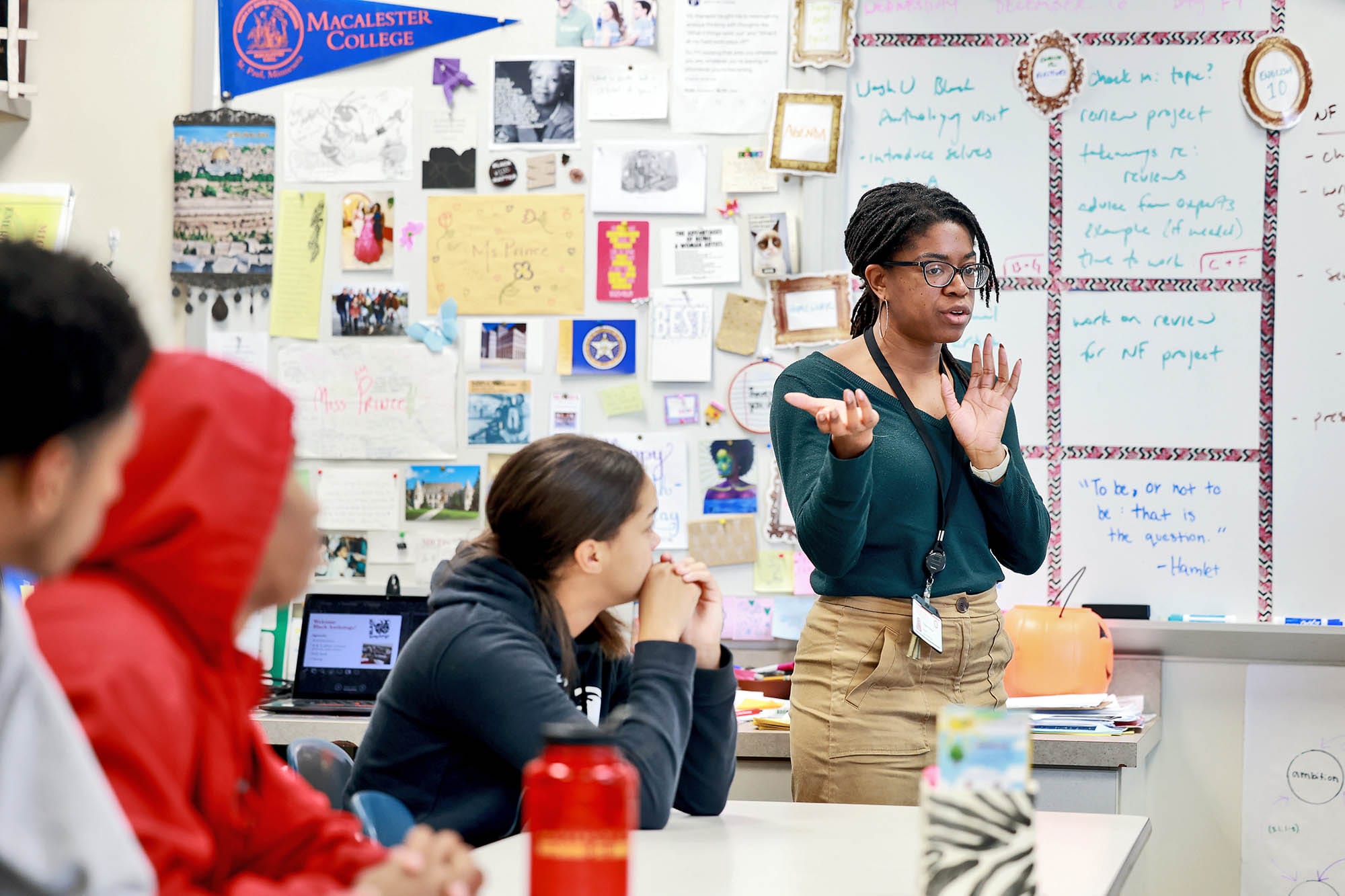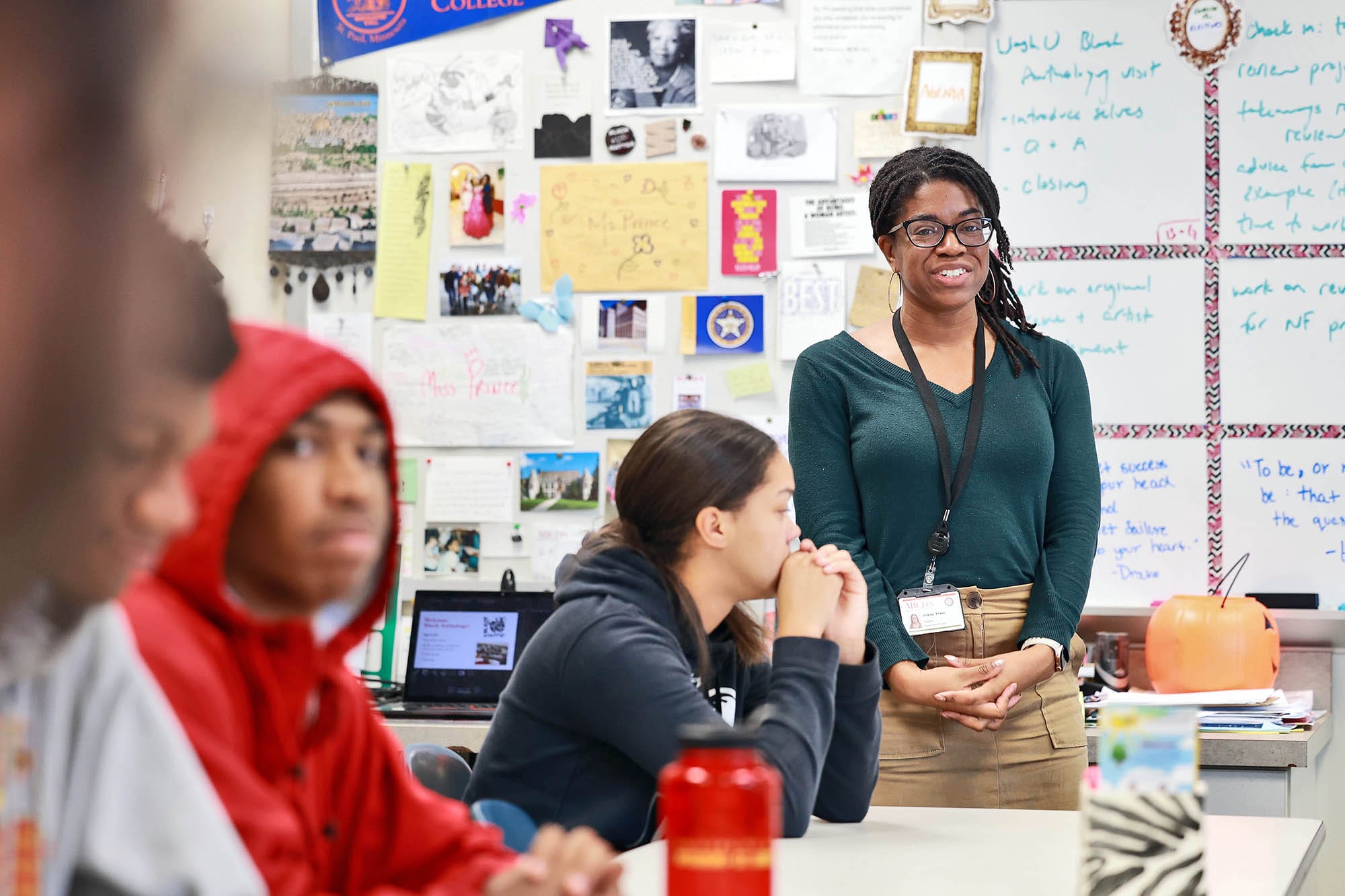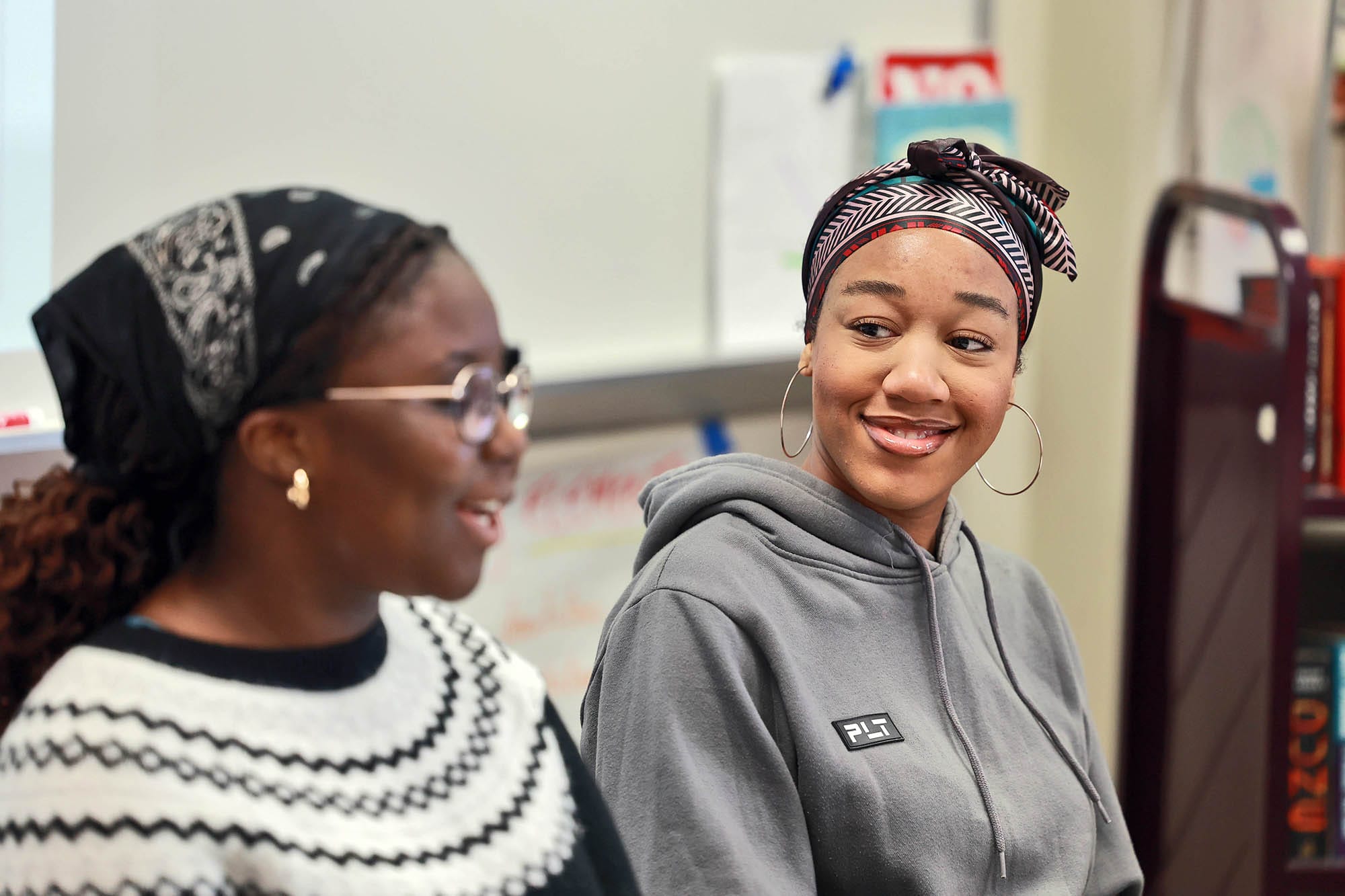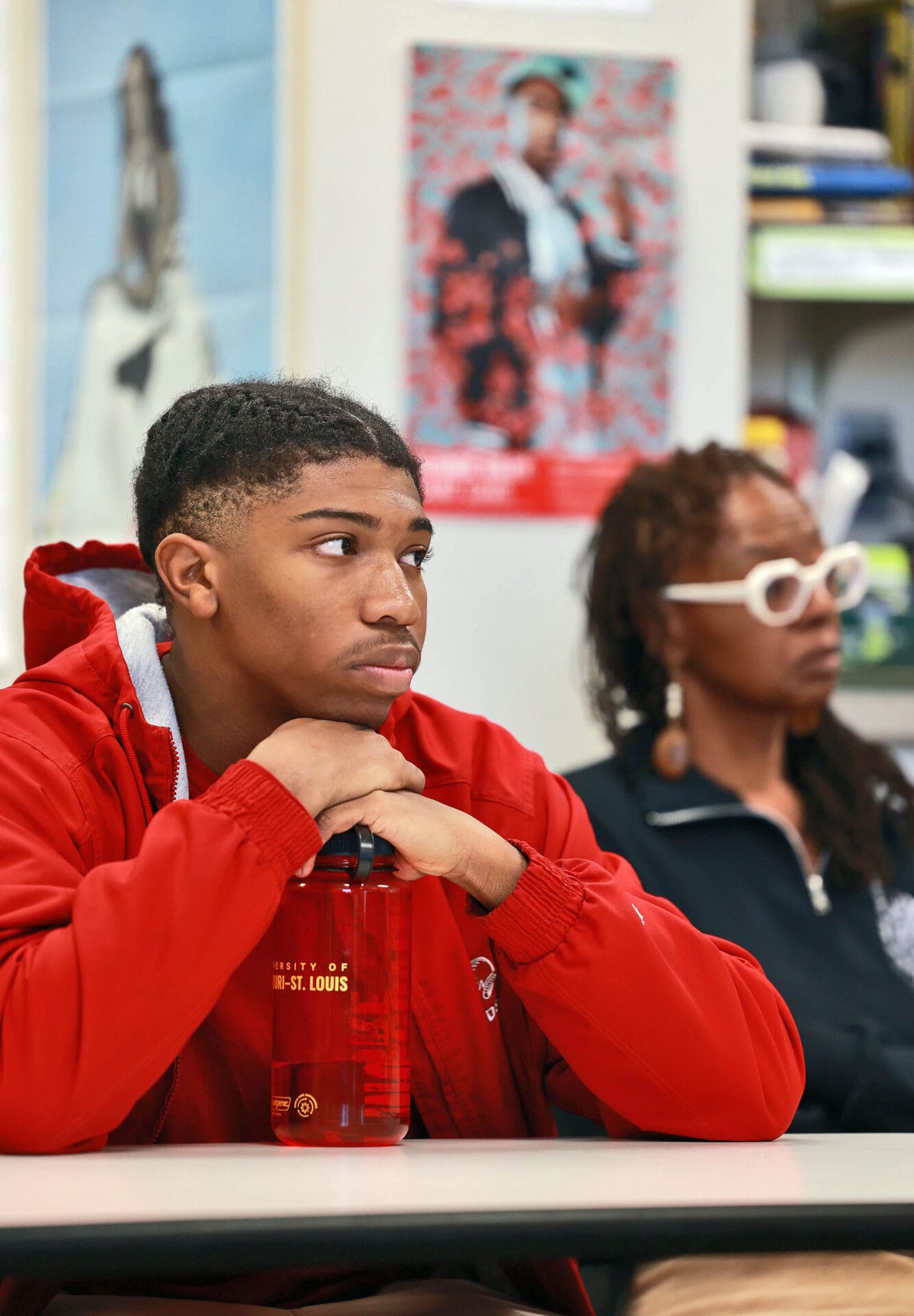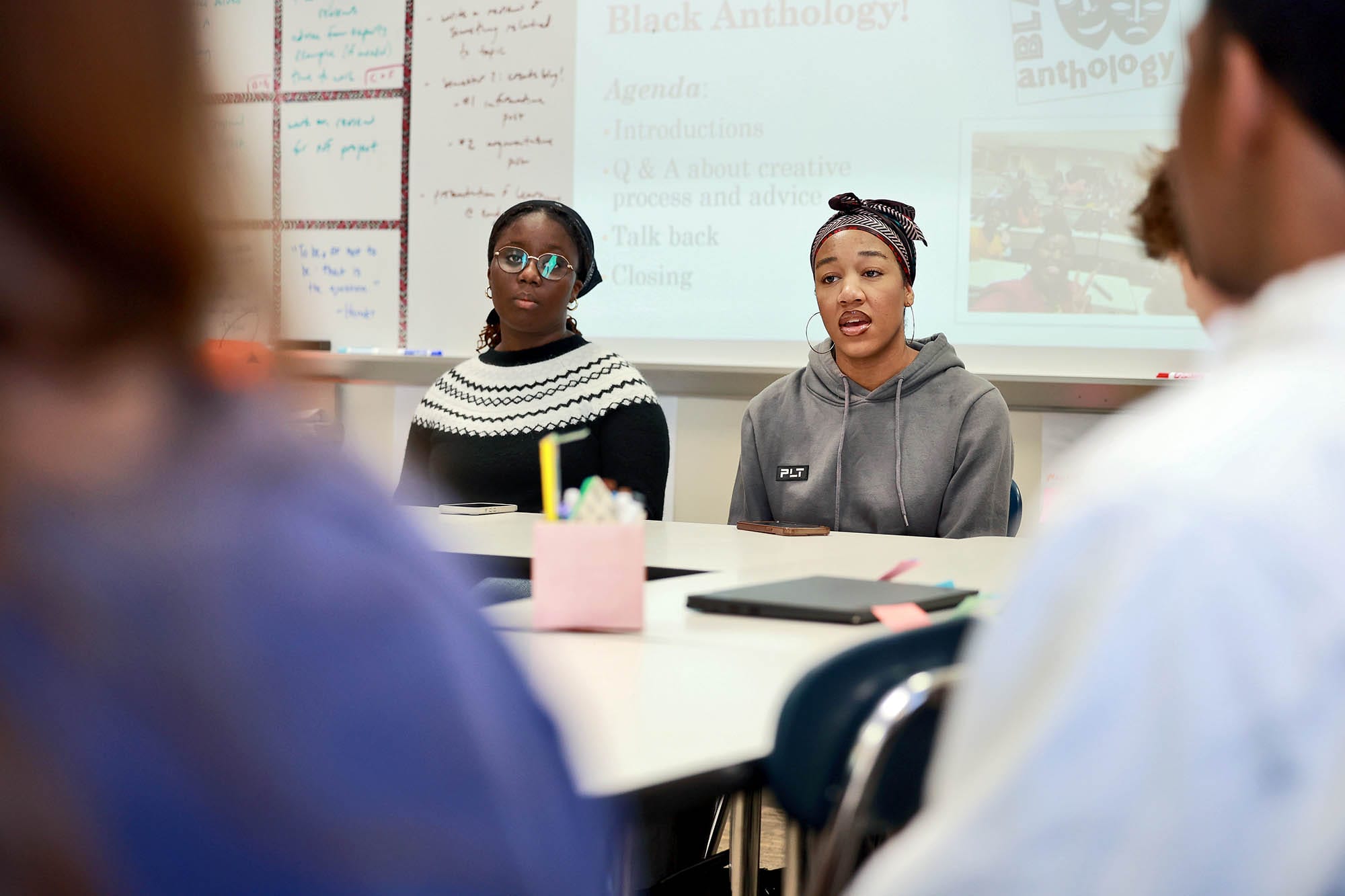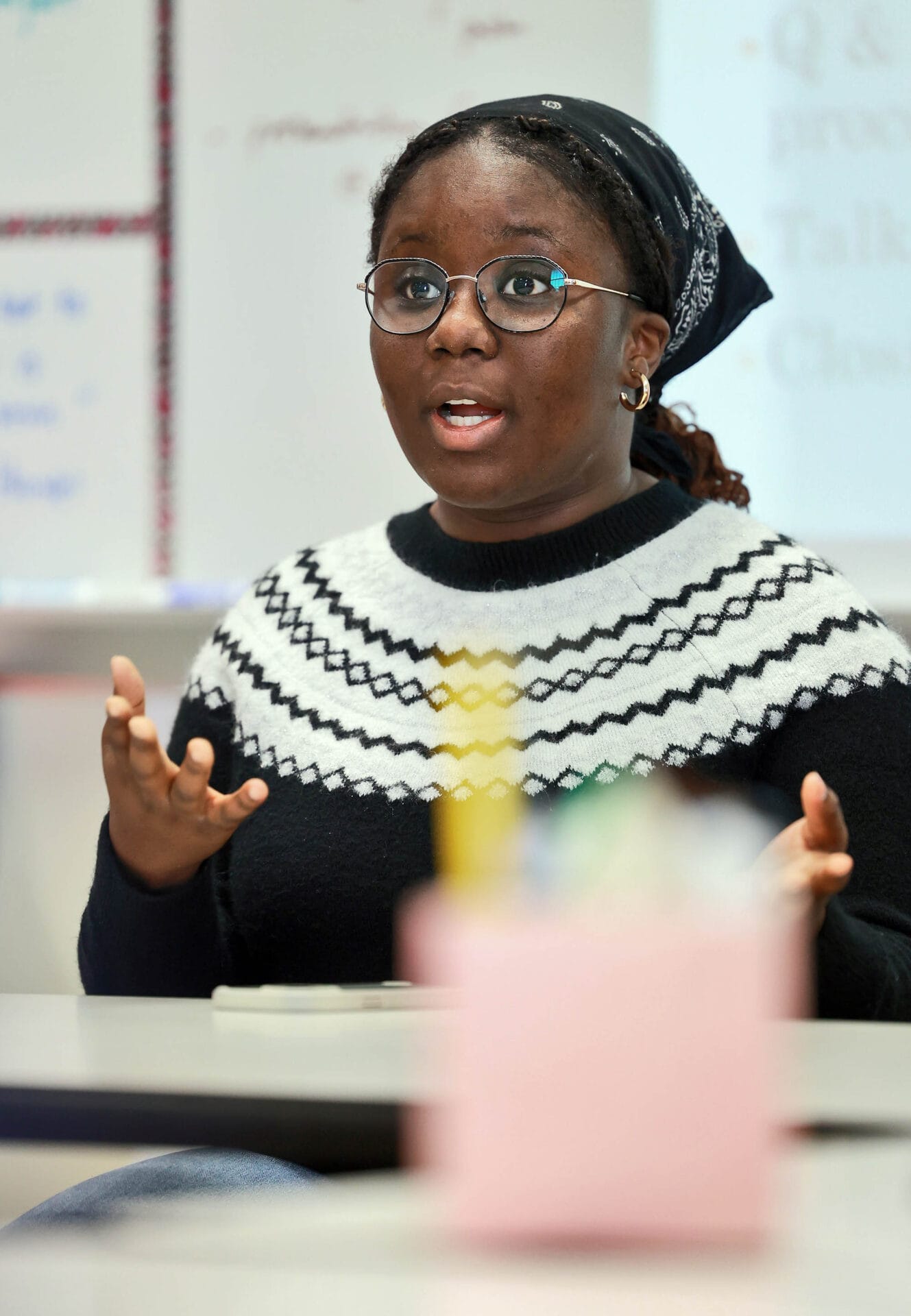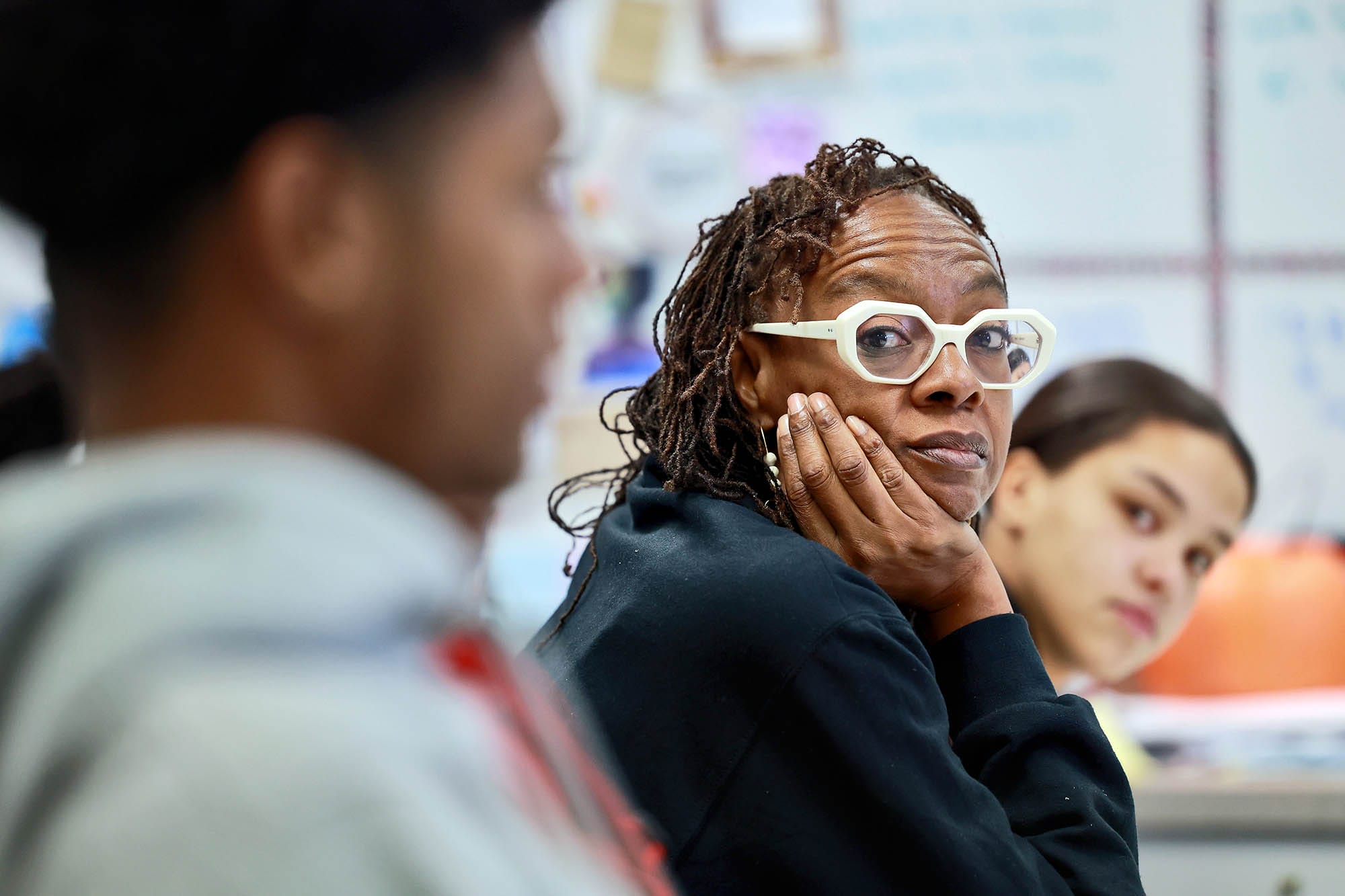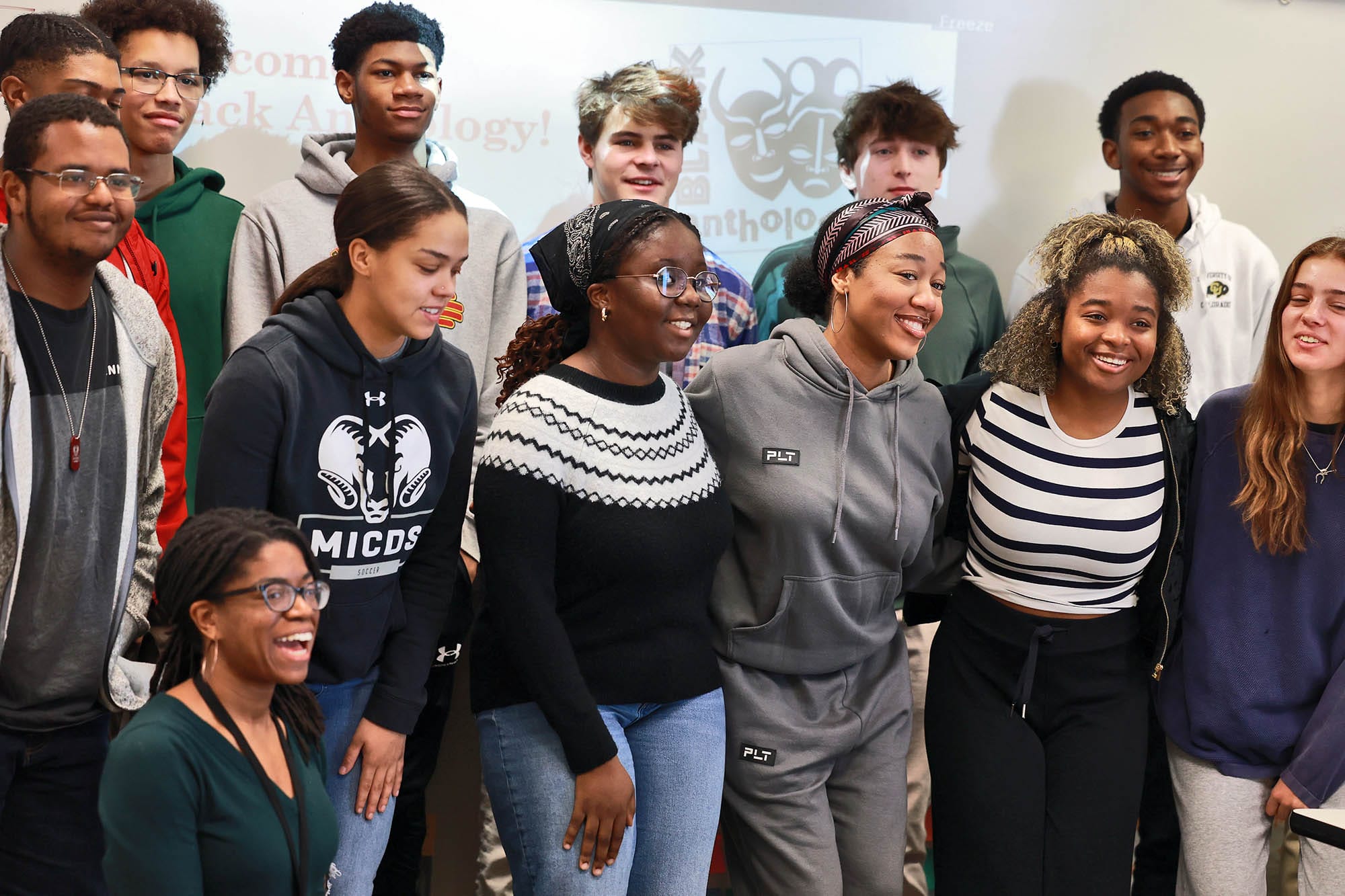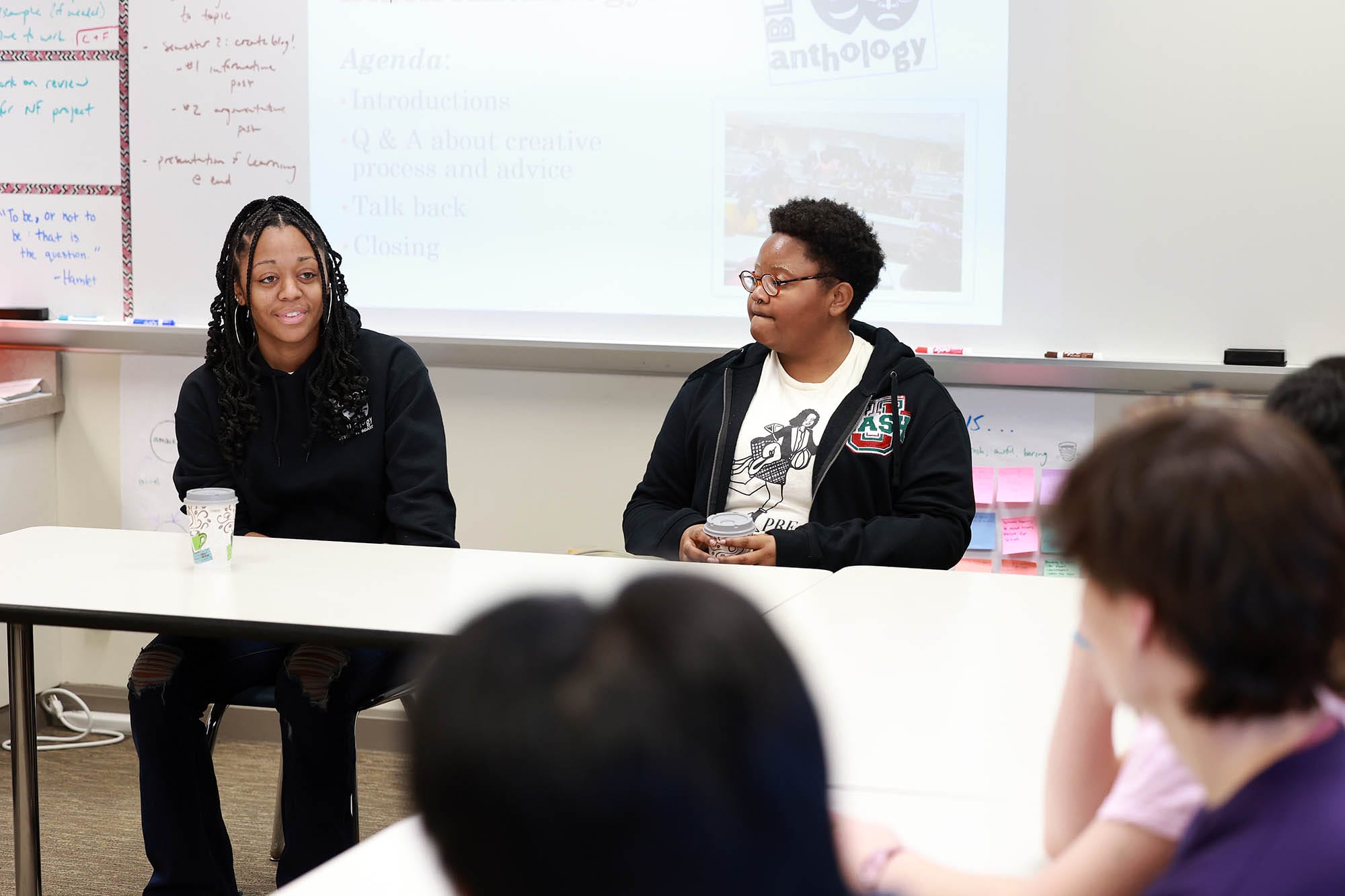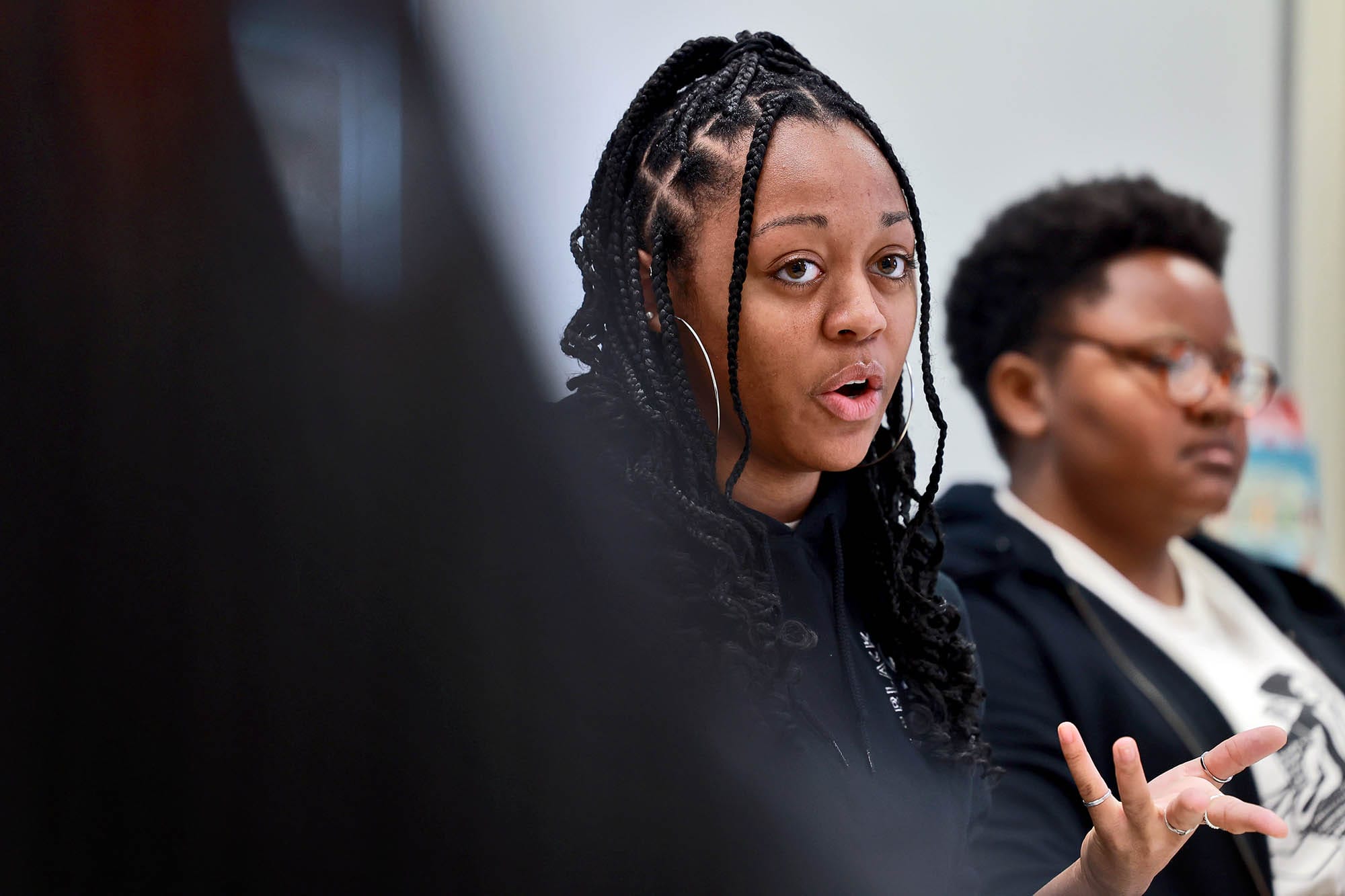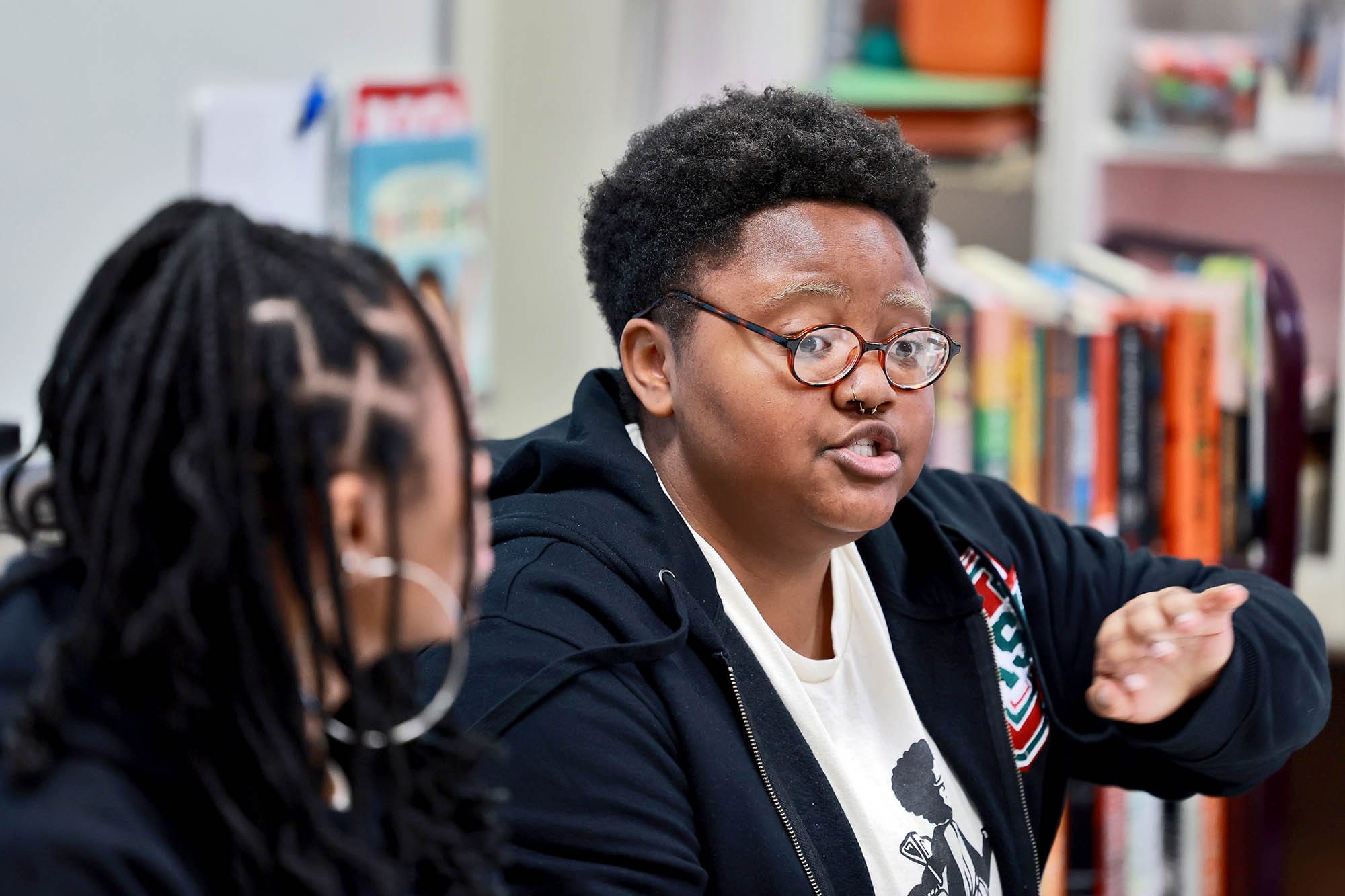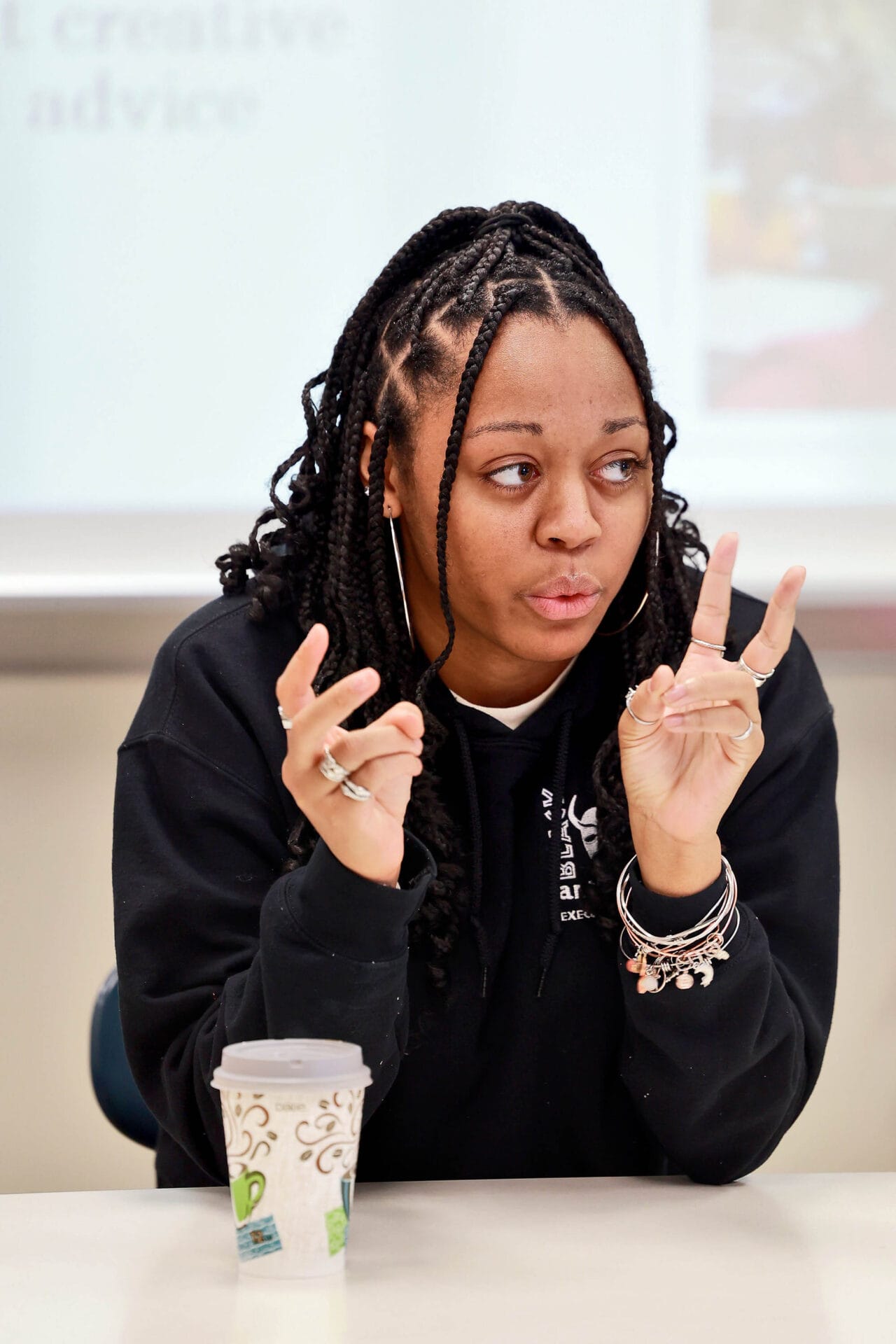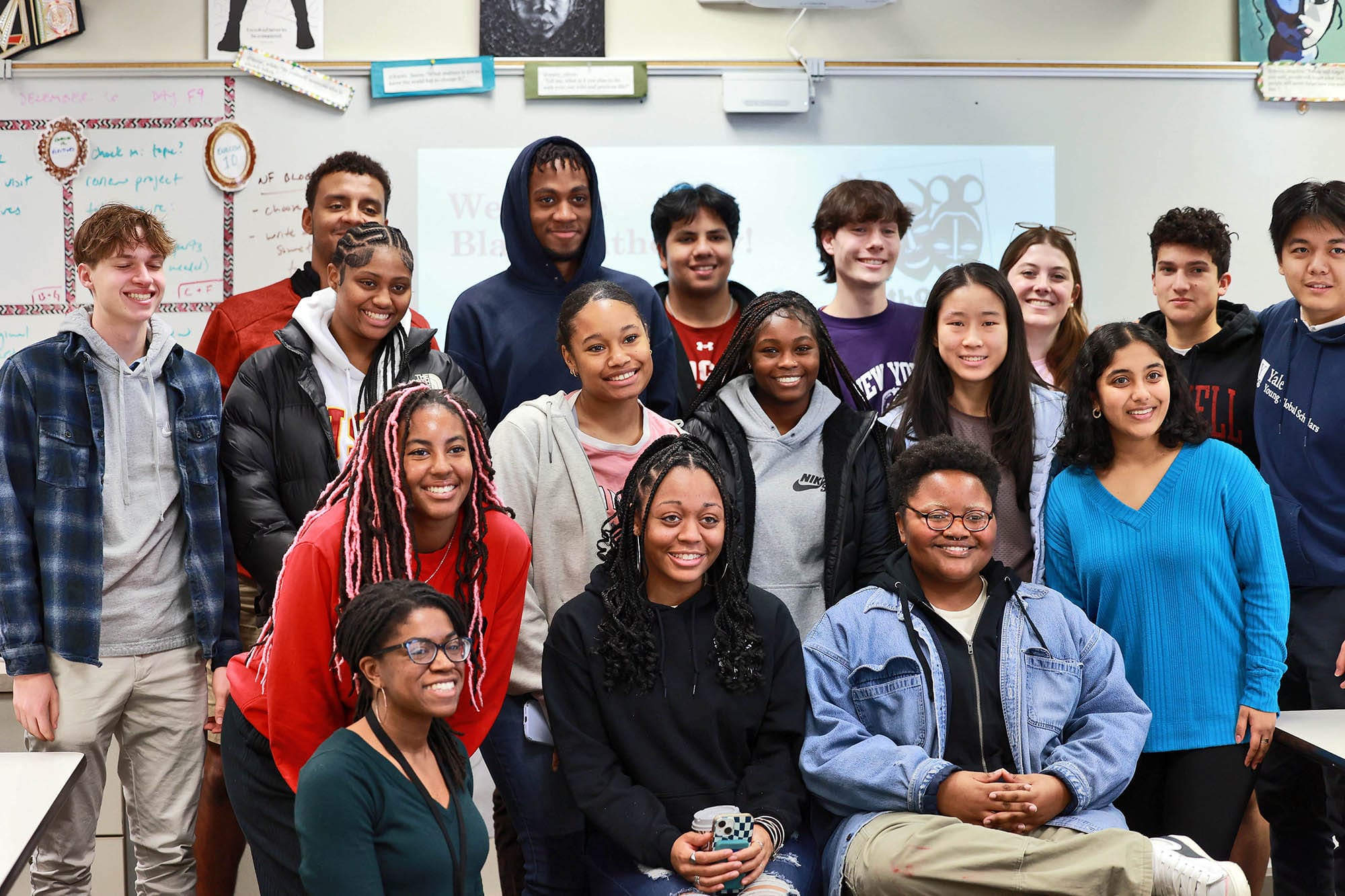For the second year in a row, Upper School English Teacher Celeste Prince partnered with alumna parent Dr. Wilmetta Toliver-Diallo P’22 to offer Prince’s seniors in her Literature of the Black Diaspora class a special guest visit: members of Washington University’s student-run Black Anthology theater production shared their thoughts about the creative process and what it’s like to write, direct, and produce.
In addition to advising Black Anthology, Dr. Toliver-Diallo is Senior Assistant Dean of Advising in the College of Arts & Sciences, Senior Lecturer in African and African-American Studies, Director of the Senegal Summer Program, and Coordinator of the Washington University African Film Festival.
Now in its 34th year and 32nd production, Black Anthology (BA) is a show that is written, choreographed, directed, and produced entirely by Wash U undergraduates. Each year, the Executive Board, cast, and crew aim to create a show that examines the nuanced black experience in America from both the past and present.
Prince’s students were working on their final project of the semester, writing an original scene that responds to or draws inspiration from the work in one of the class’s mentor texts. This final unit—plays and performances—seeks for students to explore what it means to make and critique Black performance. After writing their scene, students had to produce an artist’s statement that explained the connections they made between their own scene’s form and its content, as well as between the original scene and the play they were responding to.
Each scene had to be at least 800 words and required a detailed explanation of characters, costumes, props, and the set. They needed to include speaking, whether it was dialogue, monologue, or soliloquy, whether between their characters on stage or to the “audience.” They also needed to include stage directions, such as the blocking of how characters move within the scene. They were limited to a single scene and could not incorporate flashbacks or move to another location unless it was discussed within the dialogue.
Prince told them that they didn’t necessarily need to write about race or racism but that it was likely to connect to some element of the Black Diaspora, as discussed in class. She encouraged them to return to their source texts as they drafted and revised, seeking to identify the playwright’s techniques and decisions to figure out how to adapt them or respond to how the playwright used them.
In the middle of this project, four members of Black Anthology came to spend time with our students, allowing them insight into a production in process from a variety of perspectives.
Temi Akintuwan, BA’s publicity chair, Sarah Aliche, the writer of last year’s show and director of the 2024 offering, Dion Hines, a first-year intern and production assistant, and Kamila Reed, a second-year choreographer who also danced her first year, gave valuable advice. Prince’s students learned that BA always makes sure they end their shows with a question and were challenged to consider, “What question do you want to end with?” They were encouraged to be mindful of how much of themselves they were putting into their scenes, learning that writers often use aspects of their own lives in their work but that looking too intently at yourself can be difficult and emotional. Students were also advised to find a way to offer their message without being too direct or too subtle. It’s about finding the balance and giving audiences a chance to figure out the message on their own. Some students requested feedback on their works in progress, and Prince said that the BA members responded by asking insightful questions that forced students down new pathways of thinking.
“It was really interesting to see the themes we have been talking about throughout the semester in a real-world setting and how the WashU students incorporated their own talents and skills to create their projects,” said Shivani Devrapally ’24. “For my final, I am writing a satirical scene composed of mini exhibits in a museum; the idea is to poke fun at the absurdity of some microaggressions that women, people of color, and other minorities face. My scene is meant to explore the relationship between words and intentions. I am responding to The Colored Museum and Choir Boy—two books that deal with discovering identity and your place in the world in different ways.”
Prince said the project is valuable on several levels. “It’s a lot harder to write a play than you think,” she said. She does not grade the scenes her students create but rather their artist’s statements at the end. These statements explain how the students’ formal choices contribute positively toward the exploration and development of their themes. They also identify at least one way each student responded to their mentor text using evidence from both their original scene and the mentor text. Prince encourages her students to challenge themselves and the works they read, suggesting that they “might engage with the same theme but take a different position than the playwright, ‘talking back’ to their content.”
After the projects were complete, Prince and her students enjoyed a celebratory read-aloud on the last day of class. They plan to gather a group to see the 2024 Black Anthology production in February.
Thank you to Black Anthology for sharing their experiences and expertise with our students, and congratulations to the class for a wonderful exploration of plays and performances as part of the Black Diaspora.
Interested in reading the works our students explored this semester? Check out these pieces:
- The Mountaintop by Katori Hall
- Ruined by Lynn Nottage
- Trouble in Mind by Alice Childress
- Choir Boy by Tarell Alvin McCraney
- The Colored Museum by George C. Wolfe
